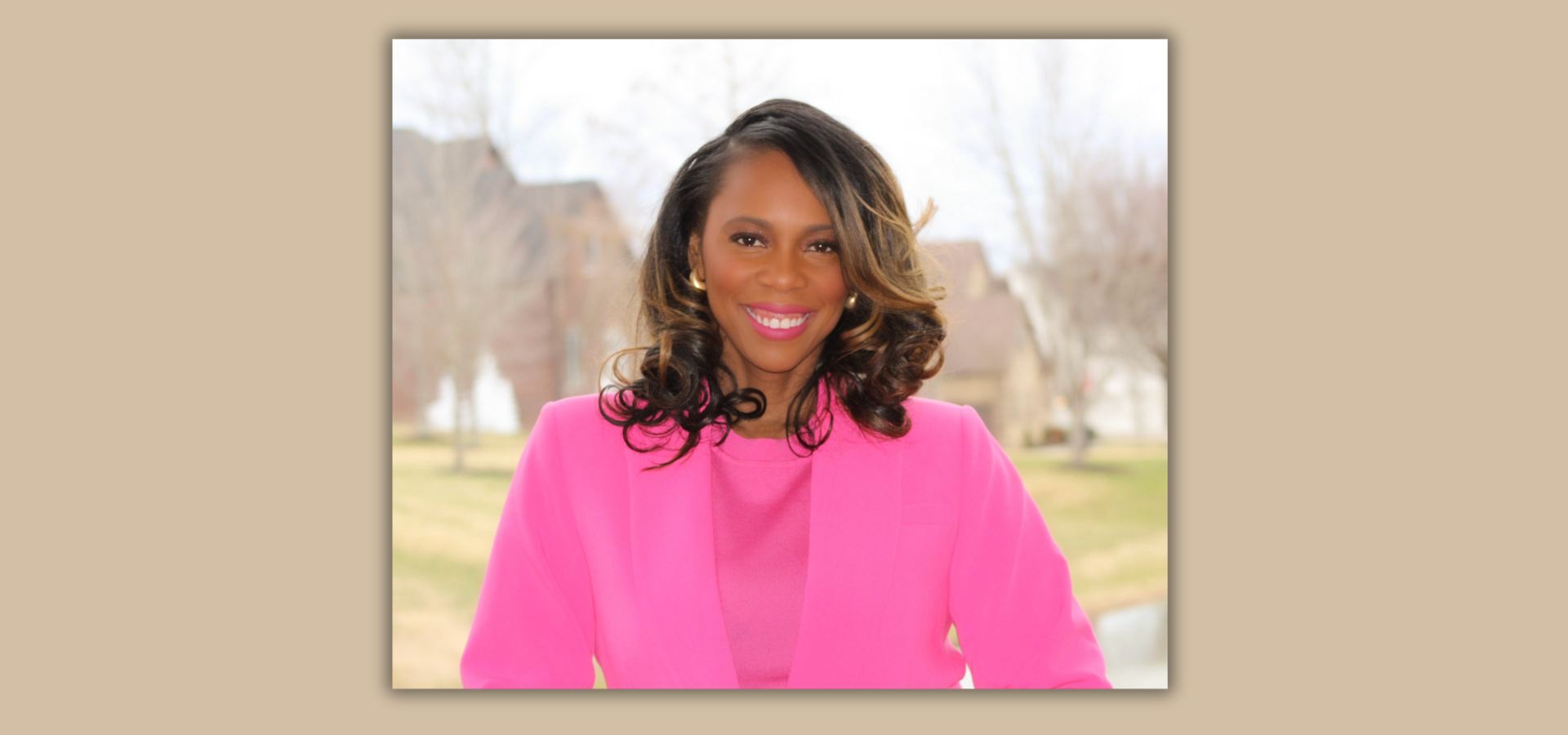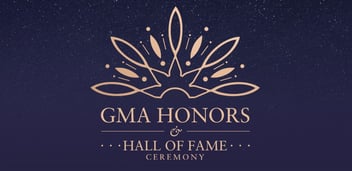
Throughout the month of June, the GMA is celebrating all things Black music. We had the opportunity to sit down with industry professional Eboni Funderburk and hear about her history with Black music and the groundbreaking genre of Gospel music.

Tell us your history with Black music in the Christian and Gospel space.
I’ve always had a love for Gospel music. Growing up “in the church,” as many of us in the Gen X generation and African American community did, music and the church was centric to our experiences, helping to foster a sense of community, hope, and connection to God.
One of my fondest memories as a kid was singing in the Sunbeams Choir and the FB Weavers youth choir at Watts Chapel Baptist Church in Raleigh, NC. This was my first introduction to Gospel music, and this early exposure nurtured my spiritual growth and connection in my faith. As a teen, I distinctly remember the first time my choir director at Shiloh Baptist Church in Old Town Alexander taught us Richard Smallwood’s soul stirring anthem “Total Praise.” It was a WOW moment. Yet, it was my introduction to Donald Lawrence’s BIBLE STORIES album on the campus of Hampton University my junior year, that cemented Gospel Music as my professional aspiration. Years later, I would have the opportunity and honor to work with both Donald and Richard, a highlight of my career.
After college, I relocated to Nashville, TN, and secured my first industry job at Gospel Today and Gospel Industry Today Magazines. Here, I was introduced to music from a different perspective. Writing about Christian and Gospel artists and listening to their stories beyond just the music, was eye opening. From their testimonies of triumphs and failures shared in the pages of these publications, I drew invaluable insights and wisdom that helped me navigate my own path in the music industry. I later joined Verity Records, which, at that time, was a subsidiary of JIVE Records. JIVE Records was also home to superstars like NSYNC, Britney Spears and R. Kelly. Kelly had just come off of a huge GOSPEL-inspired single “I Believe I Can Fly” that achieved massive crossover appeal.
At Verity, I witnessed Gospel music breakthroughs like Donnie McClurkin’s “We Fall Down” cross into the mainstream R&B market. Along with future hits from other Gospel legends like Kirk Franklin, Smokie Norful, Tamela Mann, and Marvin Sapp, this showcased the enduring cross-genre appeal of the music, and affirmed its far-reaching influence beyond the church walls.
Inside the four walls, I had a front row seat to the power and impact the Spirit can have on the lives of those it touches through song. This inspired me to want to do more to see Gospel lifted in music, and that desire helped redefine and shape my perspective, and ultimately my role in the industry as a conduit to help achieve this vision. In 2008, I launched EFG Promotions & Consulting, a radio marketing and artist branding company working with label and indie artists alike. To date, I have had the opportunity to work with several of Gospel’s top artists to see their work and ministry reach millions.
What defines the Black music genre?
Black music is more than just a song, words on a page, or a drumbeat. Black music is about our shared experiences as a people, our culture, our deep sense of community, our collective collaboration, celebration and struggle. From the Negro spiritual to modern day Hip Hop, our music has evolved out of our journey in America, some of which has passed down through oral tradition. From our resilience to freedom, our continued fight for our humanity and demands for equality, or simply our style and cadence, MUSIC has always been a way for our community to authentically express our voices, and commune together in observance and reverence. The way we love, the way we mourn, the way we boast, or educate through Black music is a testament to African American brilliance, creativity, ingenuity, strength, beauty, richness, and diversity of thought. However, we are not monotheistic–-we embody community and individuality as seen through the lens of our songs. Black music is an everyday lived and deeply felt experience, that is authentically us.
How is Black music influencing culture today?
Black music IS the cradle of American music. That’s a bold statement, but history does tell the story. Our roots created blues, jazz and Gospel, which blossomed into offshoot genres like Country and Rock & Roll. For instance, from the influences of legends like Chuck Berry, Muddy Waters, and Rosetta Tharpe came Rock & Roll greats like Elvis and The Rolling Stones—who were also influenced by the Gospel music of their day. That trend has continued to today.
Black music’s influence on mainstream culture has been undeniable. From fashion to dance, it has stood as a conduit to define what’s hip and what’s not. Genres like Hip Hop, for example— an African American created music now largely consumed by white America— has helped launch clothing lines, liquor brands, television series, movies and more.
We’ve also seen the power and influence that a great Gospel song sung by mainstream artists can have on popular culture. From Whitney Houston’s PREACHER’S WIFE soundtrack which stands as the best-selling Gospel album of all-time with over 6 million copies sold, to Aretha Franklin’s Gospel album AMAZING GRACE, which remains not only the biggest-selling live Gospel album-to-date (certified 2x Platinum in the US), but also the best-selling album of Aretha’s career. Today, artists like Kanye West, Snoop Dogg, Missy Elliott and Nicki Minaj have all recorded Gospel-influenced songs for their millions of fans.
Is this surprising? Not really. For African Americans, religion and spirituality are very important and centric to our community. According to the PEW REPORT, African Americans are the most religious ethnic group in America. Neilsen stats show that Gospel and R&B share the same audiences. In fact, many stars in mainstream music have deep seeded Christian beliefs, and are vocal about their faith.
For someone new to Black music, where is a good place to start?
Black music is everywhere—Country, EDM, Hip Hop, Pop, Jazz, Blues, Classical and, of course, Gospel and R&B. It’s hard to miss it, or its influence on popular culture and music.
If you’re simply looking for some really good music, find a good “Best Of” or “Essentials” playlist on your favorite streaming platform and start in the 60s during the era of Motown. Listen to legends like The Supremes, Aretha Franklin, The Temptations and Sam Cooke. Ride through the 70s and experience the music of Black Pride, Power to the People, love and peace with artists like James Brown, Marvin Gaye, the O’Jays and or Isley Brothers. Check out the origins of Hip Hop while you’re there (“Rappers Delight” by the Sugarhill Gang started it all). Slide into the 80s and get a hold of one of the most colorful, integrated eras in music— this is when music was still authentic and people actually played instruments and sang without auto-tune. Check out the greats like Tina Turner, Micheal Jackson, The Jacksons, Earth Wind & Fire, Shalamar, Billy Ocean, Diana Ross, Whitney Houston, the Commodores… the list goes on and on! GREAT decade. Then Finish off by stopping by the 90s. There is nothing like 90s Gospel, R&B and Hip Hop!
In the midst of acquainting yourself with these decades, make sure you’re experiencing the powerful Gospel music birthed during these eras from legends like Andre Crouch, Edwin and Walter Hawkins, the Staple Singers, the Mighty Clouds of Joy, Bebe & Cece Winans, Yolanda Adams, Kirk Franklin, Fred Hammond, John P Kee, Bishop Hezekiah Walker to name a few. Gospel was RICH—figuratively and literally— especially in the 90s and early 2000s. That era has been coined as the “platinum years” of Gospel.
However, for a real understanding and appreciation of Black music, I would do deep dives into a bit of history on the evolution of music in America and African American influences that helped shape modern day song. A great place to start might be PBS documentaries on Pioneering Black Artist or Professor Henry Louis Gates, Jr’s series on “The Black Church,” “MAKING BLACK AMERICA: THROUGH THE GRAPEVINE” and “Gospel.” These are all a must-watch.
Eboni Funderburk has carved a niche in the music world over a distinguished 25-year career. She graduated from Hampton University in 1997 with a degree in Mass Media Arts, and in 1998, stepped into the role of Managing Editor at Gospel Industry Today Magazine and Assistant Editor of Gospel Today Magazine, marking the start of an illustrious path.
In 1999, Funderburk joined the ranks of Verity Records, which at that time was the #1 Gospel label in the world. As part of an elite team, she played a pivotal role in helping to elevate the profiles of Gospel legends such as Fred Hammond, Pastor Donnie McClurkin, Bishop Hezekiah Walker, John P. Kee and a host of other luminaries, setting the stage for a new era in Gospel music. Her magic touch continued at EMI Gospel (now MOTOWN GOSPEL), where she helmed the Radio Promotions Department. Her keen ear and promotional savvy further helped spotlight Gospel music, with groundbreaking hits captivating listeners nationwide.
2006 marked a new chapter for Funderburk when she rejoined Zomba Gospel/Verity Records (now RCA Inspiration) as the Senior Director of National Promotions. Here, along with a team of three, she was instrumental in helping propel Bishop Marvin L. Sapp's "Never Would Have Made It" to unprecedented heights - helping to etch its name in music history. In 2008, she embarked on an entrepreneurial venture, establishing EFG Promotions & Consulting, specializing in Gospel radio promotions and branding. The company soon attracted a roster of clients including record labels and several A-list artists, further solidifying her status as a powerhouse in the industry. Today, her company represents artists the likes of Cece Winans, Smokie Norful, Erica Campbell and Jekalyn Carr, to name a few.
Eboni's long career is a tapestry of remarkable achievements: 32 No. 1 singles on Gospel Radio, involvement in 15 GRAMMY-nominated songs, and over 100 Top 30 charting singles. Her expertise and influence have been recognized with a "Media Excellence Awards" in 2021 and a “Women In Gospel, Making Things Happen” Award in 2017. A key figure in the Gospel music community, she serves on the Gospel Music Association Board, the Nashville Leadership Advisory Council for the Gospel Industry Network, and is a member of both Stellar Awards (SAGMA) and The Recording Academy. Her induction into the 2023-2024 Marquis Who's Who In America is a testament to her enduring impact in the Gospel music industry.
##




